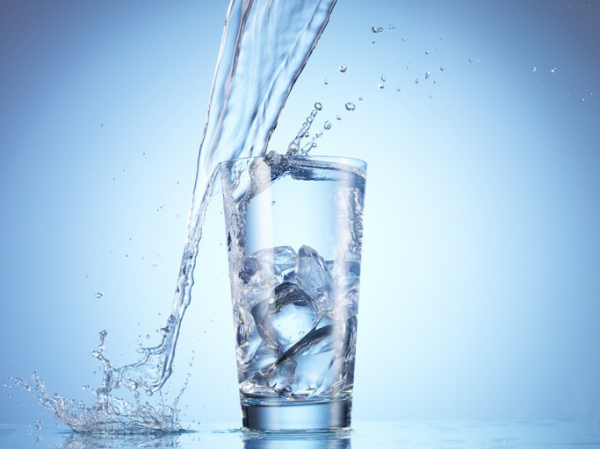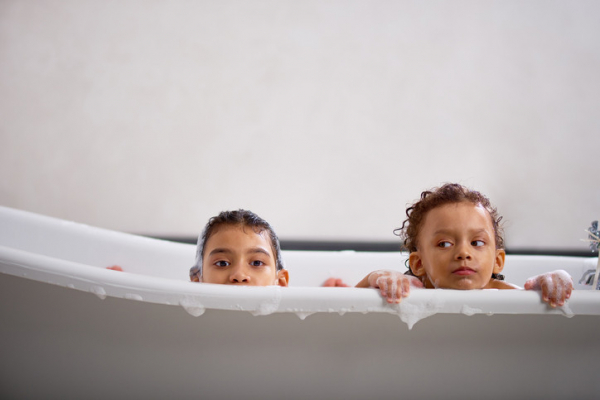
Does drinking water before meals really help you lose weight?

If you’ve ever tried to lose excess weight, you’ve probably gotten this advice: drink more water. Or perhaps it was more specific: drink a full glass of water before each meal.
The second suggestion seems like a reasonable idea, right? If you fill your stomach with water before eating, you’ll feel fuller and stop eating sooner. But did that work for you? Would drinking more water throughout the day work? Why do people say drinking water can help with weight loss — and what does the evidence show?
Stretching nerves, burning calories, and thirst versus hunger
Three top theories are:
Feel full, eat less. As noted, filling up on water before meals has intuitive appeal. Your stomach has nerves that sense stretch and send signals to the brain that it’s time to stop eating. Presumably, drinking before a meal could send similar signals.
- The evidence: Some small, short-term studies support this idea. For example, older study subjects who drank a full glass of water before meals tended to eat less than those who didn’t. Another study found that people following a low-calorie diet who drank extra water before meals had less appetite and more weight loss over 12 weeks than those on a similar diet without the extra water. But neither study assessed the impact of drinking extra water on long-term weight loss.
Burning off calories. The water we drink must be heated up to body temperature, a process requiring the body to expend energy. The energy spent on this — called thermogenesis — could offset calories from meals.
- The evidence: Though older studies provided some support for this explanation, more recent studies found no evidence that drinking water burned off many calories. That calls the thermogenesis explanation for water-induced weight loss into question.
You’re not hungry, you’re thirsty. This explanation suggests that sometimes we head to the kitchen for something to eat when we’re actually thirsty rather than hungry. If that’s the case, drinking calorie-free water can save us from consuming unnecessary calories — and that could promote weight loss.
- The evidence: The regulation of thirst and hunger is complex and varies over a person’s lifespan. For example, thirst may be dulled in older adults. But I could find no convincing studies in humans supporting the notion that people who are thirsty misinterpret the sensation for hunger, or that this is why drinking water might help with weight loss.
Exercise booster, no-cal substitution, and burning fat demands water
Being well-hydrated improves exercise capacity and thus weight loss. Muscle fatigue, cramping, and heat exhaustion can all be brought on by dehydration. That’s why extra hydration before exercise may be recommended, especially for elite athletes exercising in warm environments.
- The evidence: For most people, hydrating before exercises seems unnecessary, and I could find no studies specifically examining the role of hydration to exercise-related weight loss.
Swapping out high calorie drinks with water. Yes, if you usually drink high-calorie beverages (such as sweetened sodas, fruit juice, or alcohol), consistently replacing them with water can aid weight loss over time.
- The evidence: A dramatic reduction in calorie intake by substituting water for higher-calorie beverages could certainly lead to long-term weight loss. While it’s hard to design a study to prove this, indirect evidence suggests a link between substituting water for high-cal beverages and weight loss. Even so, just as calorie-restricting diets are hard to stick with over the long term, following a water-only plan may be easier said than done.
Burning fat requires water. Dehydration impairs the body’s ability to break down fat for fuel. So, perhaps drinking more water will encourage fat breakdown and, eventually, weight loss.
- The evidence: Though some animal studies support the idea, I could find no compelling evidence from human studies that drinking extra water helps burn fat as a means to lose excess weight.
The bottom line
So, should you bump up hydration by drinking water before or during meals, or even at other times during the day?
Some evidence does suggest this might aid weight loss, at least for some people. But those studies are mostly small or short-term, or based on animal data. Even positive studies only found modest benefits.
That said, if you think it’s working for you, there’s little downside to drinking a bit more water, other than the challenge of trying to drink if you aren’t particularly thirsty. My take? Though plenty of people recommend this approach, it seems based on a theory that doesn’t hold water.
About the Author

Robert H. Shmerling, MD, Senior Faculty Editor, Harvard Health Publishing; Editorial Advisory Board Member, Harvard Health Publishing
Dr. Robert H. Shmerling is the former clinical chief of the division of rheumatology at Beth Israel Deaconess Medical Center (BIDMC), and is a current member of the corresponding faculty in medicine at Harvard Medical School. … See Full Bio View all posts by Robert H. Shmerling, MD

Does your child need to bathe every day?

The daily bath or shower is a routine for many of us — and for our children, too. But is it really necessary?
The short answer is no.
Obviously, there are days when washing up makes good sense — like if your child is grimy from a day in the dirt; covered in sweat, paint, or other visible dirt; or had an explosive poop. It’s also a good idea to wash up if your child has spent the day in a pool (the chlorine may be irritating to the skin), a body of water (there could be things in the water that are irritating or unhealthy), or used bug spray to ward off ticks and mosquitoes. And certainly, it’s best for everyone in the vicinity when a stinky teenager takes a soapy shower.
Sometimes a doctor may recommend daily bathing for certain skin conditions. And we all need to wash our hands regularly to prevent infection. But full-body washing just for the sake of washing? Not so much.
Why not bathe a child daily?
Lots of bathing can lead to dry, irritated skin. But also, the skin has natural protective oils, and natural bacteria, that help to keep us healthy and safe — and that can get washed away with daily bathing.
If your baby or preteen looks pretty clean, isn’t stinky, isn’t covered in bug spray, and hasn’t been in a pool or other body of water, it’s fine to skip the bath or shower. Really, bathing two or three times a week is fine. In fact, for many kids, even just once or twice a week is fine. You can always do a quick wipe with a wet washcloth to the face, groin area, and any dirty spots.
Stinky teenagers might need more bathing or showering, depending on activity level and deodorant use. But even they may be able to get away with washing their face and using a soapy washcloth on their groin and underarms.
Tips for healthy bathing
When you do bathe children, here are some tips for healthy bathing.
- Don’t use hot water — use warm water instead.
- Keep it short — preferably just enough time to get the washing done.
- Avoid antibacterial soaps and bubble baths. Use mild, unscented soap and shampoo.
- Make sure bathing is supervised for all babies and young children.
- Pat dry rather than rubbing dry. If your child tends to have dry skin, using a mild, unscented greasy moisturizer after the bath can be helpful.
If your child has eczema or any other skin condition, check with your doctor to get tailored advice for bathing your child.
About the Author

Claire McCarthy, MD, Senior Faculty Editor, Harvard Health Publishing
Claire McCarthy, MD, is a primary care pediatrician at Boston Children’s Hospital, and an assistant professor of pediatrics at Harvard Medical School. In addition to being a senior faculty editor for Harvard Health Publishing, Dr. McCarthy … See Full Bio View all posts by Claire McCarthy, MD